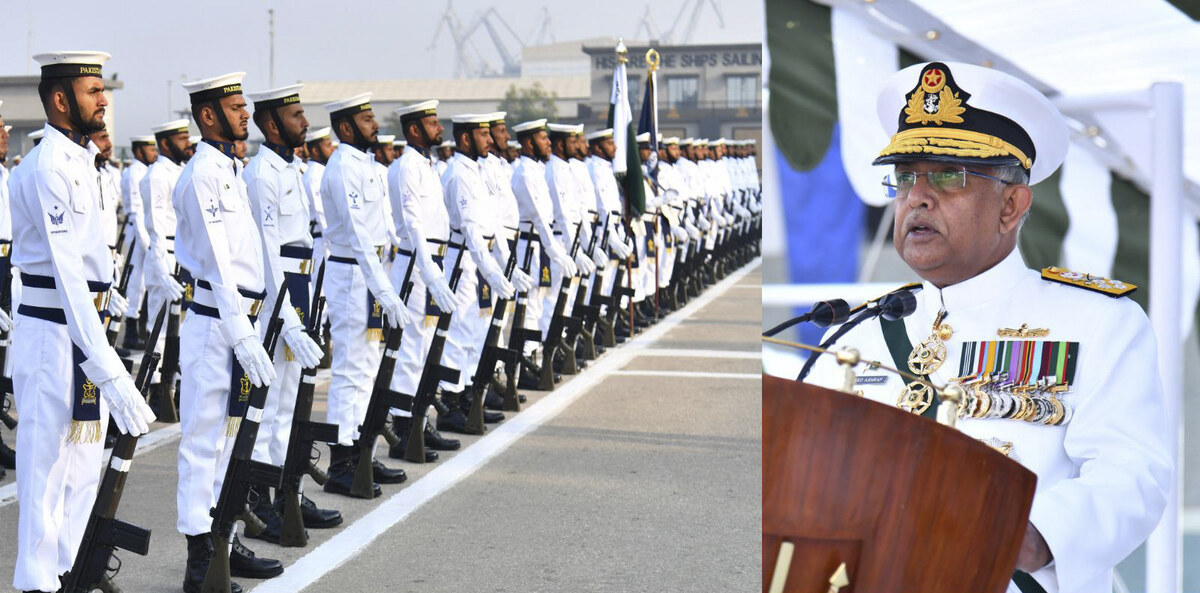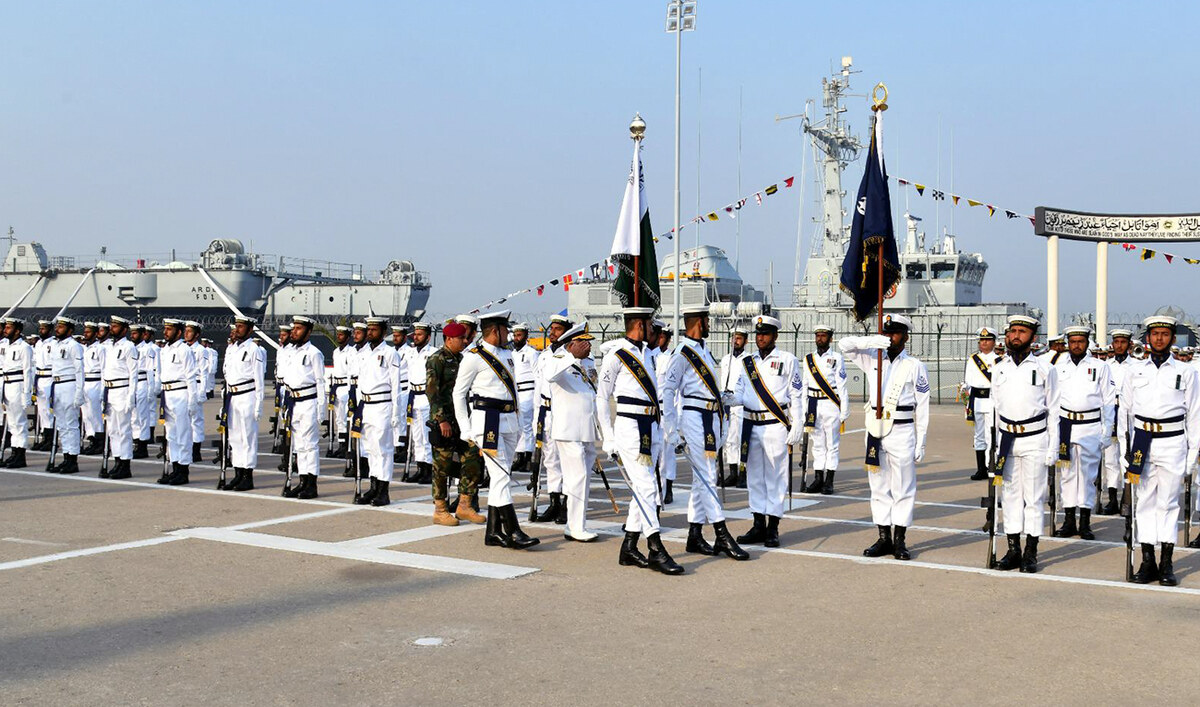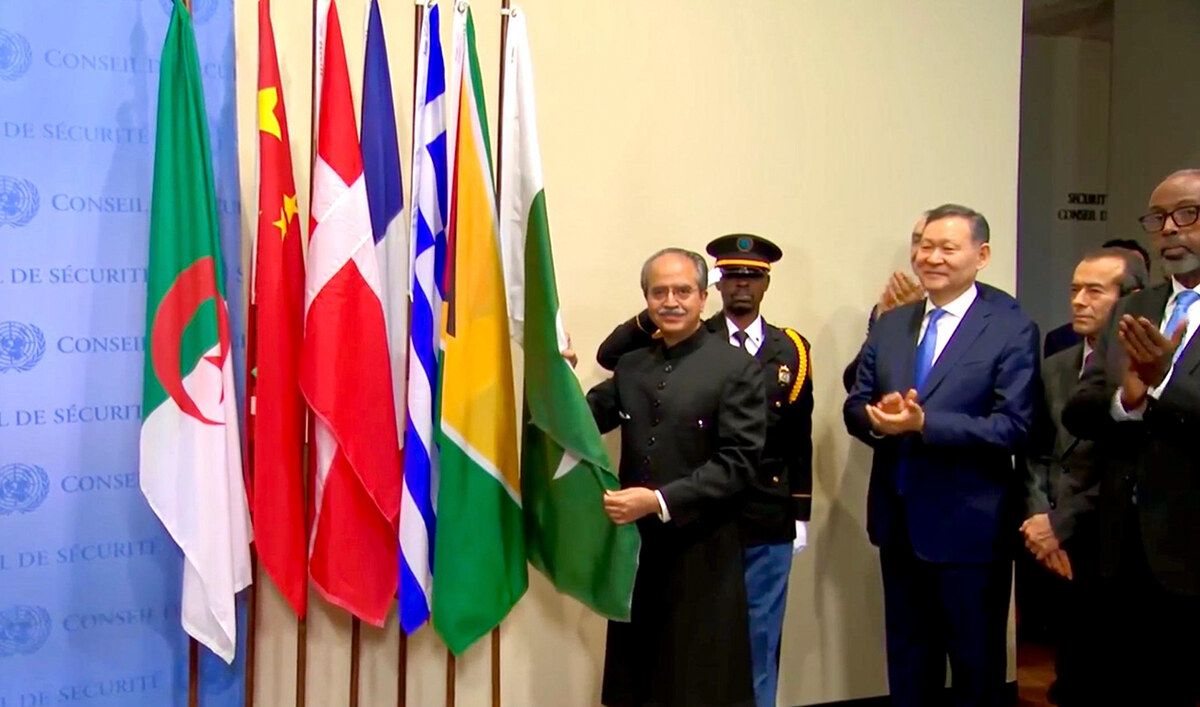ISLAMABAD: Pakistan has introduced new social media rules to make digital networks and internet service providers block and remove “unlawful online content” or face shutdown in case of non-compliance, making digital rights activists claim the measure has been taken to curb freedom of expression in the country.
Under the rules notified on Wednesday, social media companies are bound to block access to unlawful online content within twenty-four hours — or in emergency cases, within six hours — after being reported by a government authority.
If a social media company or internet service provider fails to abide by the rules, “the authority may issue directions for blocking of the entire online system or any services provided by such service providers or social media company,” reads the 13-page document.
Islamabad has been struggling to regulate online content by blocking and removing fake news and propaganda against the country’s national security institutions, including the army, blasphemous content, and other sensitive material that violates cultural and ethnic norms of the country. So far, the authorities have fully received cooperation from social media companies in the absence of local rules that regulate these networking platforms.
“The purpose of these rules is to ensure effective implementation of local laws through quick removal of unlawful, defamatory, obscene and pornographic content from social media platforms,” Khurram Ali Mehran, a spokesman for the Pakistan Telecommunication Authority, told Arab News.
He said the rules were framed in compliance with the Prevention of Electronic Crimes Act that was passed by parliament in 2016. “We are asking social media companies to open their offices in Pakistan to address genuine complaints of our users as per the law,” he said.
The government issued almost similar social media rules earlier in February, but later withdrew them after protests from digital rights activists and social media giants.
Under the rules, the social media companies and internet service providers with more than half a million users in Pakistan are required to register with the authority, establish a permanent office in Islamabad, and appoint a focal person based in the country within nine months and within three months, respectively, of coming into force of these rules.
The rules also suggest that the companies will be bound to establish one or more database servers in Pakistan within eighteen months of coming into force of these rules to store data and online content, but it is subject to the promulgation of data protection law.
“This is just to give the impression that there is a legal cover for this [blocking the online dissent and freedom of expression], but how legal this is and how constitutional this is, is up for challenge,” Farieha Aziz, a digital rights activist who heads Bolo Bhi, told Arab News.
She said the government was shrouding it all with the provision of a complaint mechanism to address grievances, but that was not enough to deal with the important issue. “Journalists and activists have a lot to lose out because social media is now their only other avenue [to express themselves],” Aziz said.
Any person aggrieved by any order or direction of the authority under the rules may file a review application within thirty days from the date of the passing of the order, and it will be decided within thirty working days. An appeal against the authority’s order can also be filed in a high court within thirty days of the order of the authority.
The rules allow any individual, government department, including a law enforcement or intelligence agency, to file a complaint against any unlawful online content with reasons for its removal or blocking access on digital platforms.
The rules have also brought internet services providers on a par with the social media companies and all the requirements have been applied to them as well, which they have termed unnecessary and in violation of the country’s cyber laws.
“We neither have capability nor the resources to monitor our traffic and identify those indulging in any unlawful online activity,” Wahaj-us-Siraj, convener of the Internet Services Providers Association of Pakistan, told Arab News.
“The government has unnecessarily dragged us into it,” he said. “This will make our business difficult, and provide the government with a tool to twist telecom operators’ arm.”
Pakistan introduces social media rules to block access to ‘unlawful’ online content
https://arab.news/6be3g
Pakistan introduces social media rules to block access to ‘unlawful’ online content

- Social networking websites are required to remove unlawful content in 24 hours after receiving a government directive
- Digital rights activists and telecom operators term the rules illegal and an attempt to curb freedom of expression in the country
Pakistan issues 94 visas to Indian pilgrims for Hindu saint’s birth anniversary in Sindh

- Shiv Avtari Sant Shadaram Sahib was born in 1708 in Lahore, which is now part of Pakistan
- Pakistani charge d’affaires in India says his country is committed to facilitating devotees
ISLAMABAD: Pakistan’s High Commission in New Delhi announced on Friday the issuance of 94 visas to Indian pilgrims to attend the birth anniversary of a revered 18th-century Hindu spiritual leader in the southern province of Sindh.
Shiv Avtari Sant Shadaram Sahib was born in 1708 in Lahore, now part of Pakistan. Known for his spiritual teachings and emphasis on universal love, he is believed to be an incarnation of Shiva, one of the principal deities in Hinduism, by his followers.
His most notable legacy is the founding of Shadani Darbar, a prominent Hindu temple and spiritual center located in Hayat Pitafi, situated in Ghotki District, which became a pilgrimage destination.
“@PakinIndia has issued 94 visas to Indian pilgrims for their visit to Pakistan to participate in the 316th Birth Anniversary Celebrations of Shiv Avtari Stguru Sant Shadaram Sahib, at Shadani Darbar Hayat Pitafi, Sindh from 05-15 January 2025,” the high commission posted on X, formerly known as Twitter.
It mentioned that the Charge d’Affaires Saad Ahmad Warraich wished the pilgrims a “rewarding and fulfilling journey,” emphasizing Pakistan’s commitment to preserving sacred religious sites and facilitating pilgrimages.
Religious tourism remains a key aspect of cultural exchanges between India and Pakistan, governed by the 1974 Protocol on Visits to Religious Shrines. This agreement allows devotees from both countries to visit sacred sites, including Hindu temples in Pakistan and Islamic shrines in India. However, political tensions between the two nations have at times disrupted these exchanges, with instances where visas were denied to religious pilgrims.
In recent years, Pakistan has actively promoted religious tourism, welcoming Buddhist monks as well as Hindu and Sikh pilgrims from India and across the globe. The inauguration of the Kartarpur Corridor in 2019, which allows visa-free travel for Indian Sikhs to the Gurdwara Darbar Sahib in Kartarpur, is a significant milestone in these efforts.
Each year, a large number of Indian Sikhs also travel to Pakistan to pay homage at sacred sites, including Maharaja Ranjit Singh’s Samadhi in Lahore, the last resting place of the founder of the Sikh Empire, and Gurdwara Panja Sahib in Hasan Abdal, revered for its connection to Guru Nanak.
Pakistan launches IT training portal with Huawei to build digital skills among youth

- Shaza Fatima Khawaja says it is vital to equip Pakistani youth with necessary skills to bolster the economy
- The training program will use Huawei’s resources and global expertise to deliver comprehensive education
ISLAMABAD: State Minister for Information Technology Shaza Fatima Khawaja on Friday stressed the importance of equipping youth with digital skills as the IT ministry, in collaboration with Huawei, launched a training portal to develop a more technologically skilled workforce, the state media reported.
The government views information technology as a driver of economic change, seeking to transform the sector into a cornerstone of its strategy for financial stability. Pakistan has earmarked IT as a priority sector, courting foreign investment from countries like China and the Gulf states.
“The main objective of this program is to impart training to our youth, making them eligible for jobs and enabling them to contribute to the country’s development,” Khawaja was quoted by the Associated Press of Pakistan as saying at the launch of the portal.
“To bolster the economy, it is essential to equip our young population with the necessary training and skills,” she added.
The minister emphasized the importance of IT in the modern age, pointing out that the government was also setting up e-employment centers and e-libraries.
Highlighting the country’s potential in the field, Khawaja noted that over 150 million young people in Pakistan were under 30, adding that they could play a critical role in driving economic progress.
The minister announced the formation of a National IT Skills Committee, comprising representatives from IT boards and provincial ministries, to strengthen governance and coordination in the sector.
Huawei’s Deputy CEO Ahmed Bilal Masud highlighted the company’s commitment to fostering digital literacy and bridging the gap between academic knowledge and industry needs.
“By investing in the future of our youth, we are paving the way for a skilled workforce that will drive Pakistan’s economic growth and technological advancement,” he said.
He informed that the training program would utilize Huawei’s extensive resources and global expertise to deliver comprehensive education for students and trainers, aiming to enhance ICT education nationwide and promote digital transformation in Pakistan.
Pakistan naval chief lauds fleet readiness, highlights role in securing vital maritime zones

- Admiral Naveed Ashraf witnesses Pakistan Navy’s annual efficiency competition parade in Karachi
- Ashraf praises officers and sailors for achieving the operational objectives and milestones in 2024
ISLAMABAD: Chief of the Naval Staff Admiral Naveed Ashraf on Friday expressed satisfaction with the operational readiness of Pakistan’s fleet, highlighting its critical role in safeguarding strategic maritime zones, including Gwadar Port developed under the China-Pakistan Economic Corridor (CPEC), to boost trade and regional connectivity.
The Gwadar Port, a vital link in Pakistan’s efforts to enhance regional trade, has been at the center of the country’s push to convince landlocked Central Asian states to utilize its ports for international trade via sea lanes.
The navy has also been instrumental in fostering the development of Pakistan’s blue water economy, ensuring maritime security and facilitating economic growth.
“Chief of the Naval Staff expressed complete satisfaction and confidence in the operational readiness of Pakistan Navy Fleet,” the navy said in a statement after holding fleet annual efficiency competition parade. “He lauded the dedication and professionalism of officers and sailors in safely and efficiently achieving the operational objectives and milestones for the year 2024.”

“He highlighted Pakistan Navy’s efforts to ensure the security of strategic maritime zones, particularly Gwadar Port and maritime projects under CPEC,” it added.
The parade was held at the dockyard in Karachi. The naval chief attended the event as the chief guest and elaborated on the evolving maritime security challenges in the region.

He also stressed the need for the navy to remain vigilant and prepared to counter any threats to Pakistan’s maritime boundaries.
Earlier, Commander Pakistan Fleet Rear Admiral Abdul Munib, in his welcome address, highlighted the fleet’s operational achievements over the past year.
Awards and trophies were presented to the best-performing squadrons and units during the ceremony, recognizing their exemplary contributions to the navy’s operational success in 2024.
Pakistan pledges support for occupied peoples as it joins Security Council as non-permanent member

- Senior Pakistani diplomat at the UN highlights the significance of multilateralism in tacking global challenges
- Pakistan plans to actively pursue just solutions to issues on the council’s agenda, help with conflict prevention
ISLAMABAD: Pakistan reaffirmed its commitment to being a strong voice for people under foreign occupation as it raised its flag at the United Nations on Thursday, marking the beginning of its two-year term as a non-permanent member of the UN Security Council.
This is the eighth time Pakistan has secured a seat as a non-permanent UNSC member since joining the world body in 1947. The 15-member council comprises five permanent members — the United States, Russia, China, the United Kingdom and France — along with 10 non-permanent members elected for two-year terms.
Non-permanent members play a crucial role in shaping global discussions on peace and security and in influencing the drafting of resolutions.
“Pakistan will continue to be guided by the purposes and principles of the UN Charter, including maintenance of international peace and security and development of friendly relations among nations based on the principle of equal rights and self-determination,” Ambassador Asim Iftikhar, Pakistan’s Alternate Permanent Representative to the UN, said during the flag-raising ceremony.

“Pakistan will always remain a strong voice for peoples under foreign occupation and oppression for the realization of their right to self-determination,” he added.
Iftikhar said the flag ceremony symbolized democratic renewal through the periodic rotation of the UNSC membership, reinforcing the global aspiration for a Security Council that “is more effective, open and transparent, and accountable to the UN membership.”
He also highlighted the importance of multilateralism in tackling global challenges.
“We are convinced that cooperative multilateralism – with the UN at its core – is the best way of tackling the multifaceted challenges of today,” he said.

The Pakistani diplomat called for addressing the root causes of conflicts, prioritizing dialogue and diplomacy and supporting confidence-building measures at regional and global levels to foster peace and stability.
He also pledged that his country will actively pursue just solutions to issues on the council’s agenda and to contribute to conflict prevention and peacekeeping efforts.
“Never forgetting our solemn duty toward the millions of men, women, and children suffering in conflicts, Pakistan is assuming this responsibility, fully resolved to our collective endeavor for a more peaceful and secure world,” he said.
Pakistan PM blames ‘external hand’ for militant violence, urges coordinated action on security

- Shehbaz Sharif asks federation, provinces and army to formulate a security strategy at the earliest
- Military says security forces have killed 925 militants last year in 59,775 operations across Pakistan
ISLAMABAD: Prime Minister Shehbaz Sharif on Friday blamed external forces for the surge in militant violence in Pakistan, urging a unified approach involving federal and provincial authorities along with the military to tackle the crisis.
Pakistan’s northwestern Khyber Pakhtunkhwa and southwestern Balochistan provinces witnessed a spike in deadly militant attacks last year. Groups such as the Pakistani Taliban and other militant and separatist factions have targeted security convoys, checkpoints and carrying out daily killings and kidnappings of law enforcement personnel and government functionaries.
Officials in Islamabad have frequently accused Afghanistan of enabling “cross-border attacks,” a claim rejected by Kabul, which insists Pakistan’s security challenges are an internal matter.
Pakistan has also pointed fingers at India for stoking unrest in Balochistan, an allegation dismissed by New Delhi.
“In certain areas of Khyber Pakhtunkhwa and Balochistan, the conspiracies being woven against Pakistan involve an external hand,” Sharif said while addressing the apex committee meeting of the National Action Plan in the federal capital. “We are well aware of the countries providing assistance [to militant groups].”
The prime minister emphasized closer cooperation among the Pakistani authorities to defeat militancy.
“I would only request that if the provinces, along with the federation and the Pakistan Army, could make a plan,” he said. “I feel we have to discuss how to eliminate this [militant violence].”
Sharif stressed that Pakistan’s success in different domains depended on improved law and order and the complete elimination of militants.
“Unity of thought and action” among stakeholders, he noted, was essential to thwarting militant schemes aimed at destabilizing the country.
The meeting was attended by Army Chief Gen. Asim Munir, DG Inter-Services Intelligence Lt. Gen. Asim Malik, federal ministers and all provincial chief ministers.
Last month on December 27, military spokesman Lt. Gen. Ahmed Sharif Chaudhry reported that 925 militants were killed in 59,775 operations across the country in 2024, with the majority in Khyber Pakhtunkhwa and Balochistan.
Militant attacks have surged in Pakistan since November 2022, following the collapse of a fragile truce between Islamabad and the Tehreek-e-Taliban Pakistan (TTP).
Ethnic Baloch separatists are also engaged in a decades-long struggle for independence, accusing the central government of exploiting the province’s natural resources.









